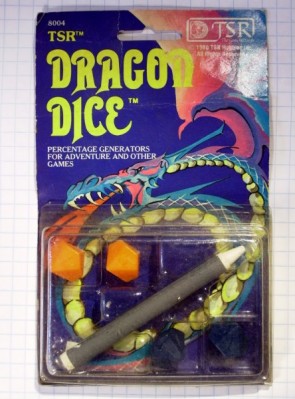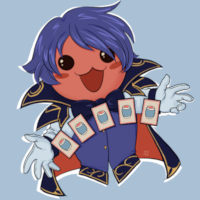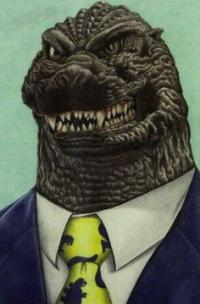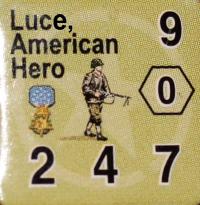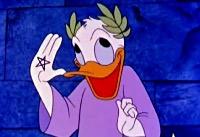Grithsdane was disposable. That's what made him so much fun.
When I started playing Dungeons & Dragons in the late '70's, we rolled our character's statistics in order: strength, intelligence, wisdom, constitution, dexterity, charisma. We used three six-sided dice for each statistic and we played whatever we rolled. If you rolled a high wisdom, you played a cleric. You rolled a high dexterity? Enjoy your thief. Rangers were rare and paladins were very few and very far between. Later, we drifted to statistic generation systems like "re-roll 1's" or "best 3 out of 4d6." But in the beginning, it was simple: three dice per statistic, right down the line. And it was magical. It may well be that my memory is muddled by a pleasant haze of nostalgia, but indulge me for a spell and I'll tell you why it was a magical time. Maybe afterward, you'll feel it too.
First, it was a time of wild variability in play style and character scores. No two characters were alike, in essence or in archetype, due as much to our desire to break free from Tolkien's long shadow as the capriciousness of the dice. Our characters were all different, all rough and damaged to some degree, and all stubbornly individualistic. And we played them that way, with as much emphasis on their weaknesses as their strengths. Each and every one was full of life and flavor and oddity, thanks in no small measure to the brutality of those three dice.
Case in point: Grithsdane.
Grithsdane was a magic user with unimpressive stats. As I recall, he had: strength 10, intelligence 17, wisdom 10, constitution 11, dexterity 7, charisma 7. I should have re-rolled him, but 17s were hard to come by, so I didn't. I played him, more on a lark than anything else. He turned out to be one of the most enjoyable and fulfilling characters I have ever played. He topped out around level 14 or so, which was rather high for our campaigns. (We were quite stingy with experience points and tended to find creative ways to suck away levels.)
So, why was Grithsdane so much fun? Because he wasn't worth saving. He didn't trigger a "protective" mode of play, so I was free to develop him as his statistics suggested: an unhinged, ugly, clumsy, crusty curmudgeon. He was gruff and mean-spirited, but smart enough to know who his friends were and act accordingly. He was also impatient, easily agitated, and reckless. He was never supposed to survive. What's that yellow goop seeping out of the wall? Grithsdane will touch it. What's causing that curtain to ripple in still air? Grithsdane will have a look. Who will approach the floating, bloody skull? Grithsdane. Duh. Like you had to ask. By the time Gristhdane reached level 5, he'd lost a hand to misadventure. He replaced it with a dagger. Several, in fact, over the course of his career. Eventually those daggers served as conduits for electricity spells. Of course, he experimented along the way. The saw-blade version was conceptually interesting, but proved too difficult to remove from bodies in a timely manner. By level 8, Grithsdane had lost an eye. He replaced it with a gem, over which he wore a patch with a drawing of an eye on it. He thought it was a riot. So did the wizard that eventually enchanted the gem with a True Seeing spell. Grithsdane wanted the patch enchanted instead of the gem, but that was not to be. He took to shock tactics around level 10, such as quaffing a potion of fire resistance and running into the midst of combat while casting a fireball spell on himself. He'd stagger away afterward, almost always badly wounded, scorched, and grinning broadly, loudly bemoaning the potions and scrolls he'd destroyed in the process. When we played, fire was fire: if you were in the way, you got burned. Area of effect spells were to be used with care.
The second reason that things felt magical was because we stressed story weaving over story telling. A story telling DM creates a narrative and invites players into the tale to take on specific roles that influence the way the story plays out. A story weaving DM creates a world in which they and the players construct a joint narrative in which no one, not even the DM, ever really knows how the story will evolve or where it will go. As story weavers, the rules existed to guide us, not constrain us, and our role playing was supported by dice, not managed by them. I never expected Grithsdane to survive. No one did. And let's be honest: in a campaign dictated by rules and dice, he would have been pushing up daisies before he hit third level. But Grithsdane did more than survive: he thrived. Whether he did so because of luck, unintended consequences, or the DM's pleasure never mattered to us. What mattered was that the stories we wove together were always good, and somehow more colorful, more fun, and more quirky with Grithsdane in them. No one remembers with any emotion how their fully geared, stat-maxed paladin took out a vampire lord (trope) in a dark (likely) castle (probably) to break a longstanding (of course) family (naturally) curse. It's a "yeah, that happened" kind of event. But the story of an awkward, one-handed, half-blind magic user sticking his daggered stump into an ogre, frying it from the inside with a lightning bolt channeled through the blade, and pulling out a charred stump of blackened flesh and melted metal? That's the stuff of game group legend.
Few gamers today would play a Grithsdane. His stats are too low. Besides, most of today's gamers would balk at the notion of rolling three dice per statistic in order. They'd be too focused on maximizing their DPS or optimizing their gear or some other nonsense to bother with such an obviously suboptimal character. Competitive campaigns and online games tend to push people in that direction. As do shiny, thick books full of words and pictures and rules. I feel pretty bad for those players... not so much because of what they are missing, but because they don't even know what they're missing. A good adventure shouldn't feel like you beat the odds or outsmarted your DM, it should feel like you're reading The Hobbit for the first time while riding your first two-wheeler down the biggest hill in the neighborhood with a ramp set up at the end. Maybe I'll try D&D again, for old time's sake, with three merciless dice. Maybe I can ride that bike again.


 Games
Games How to resolve AdBlock issue?
How to resolve AdBlock issue? 














